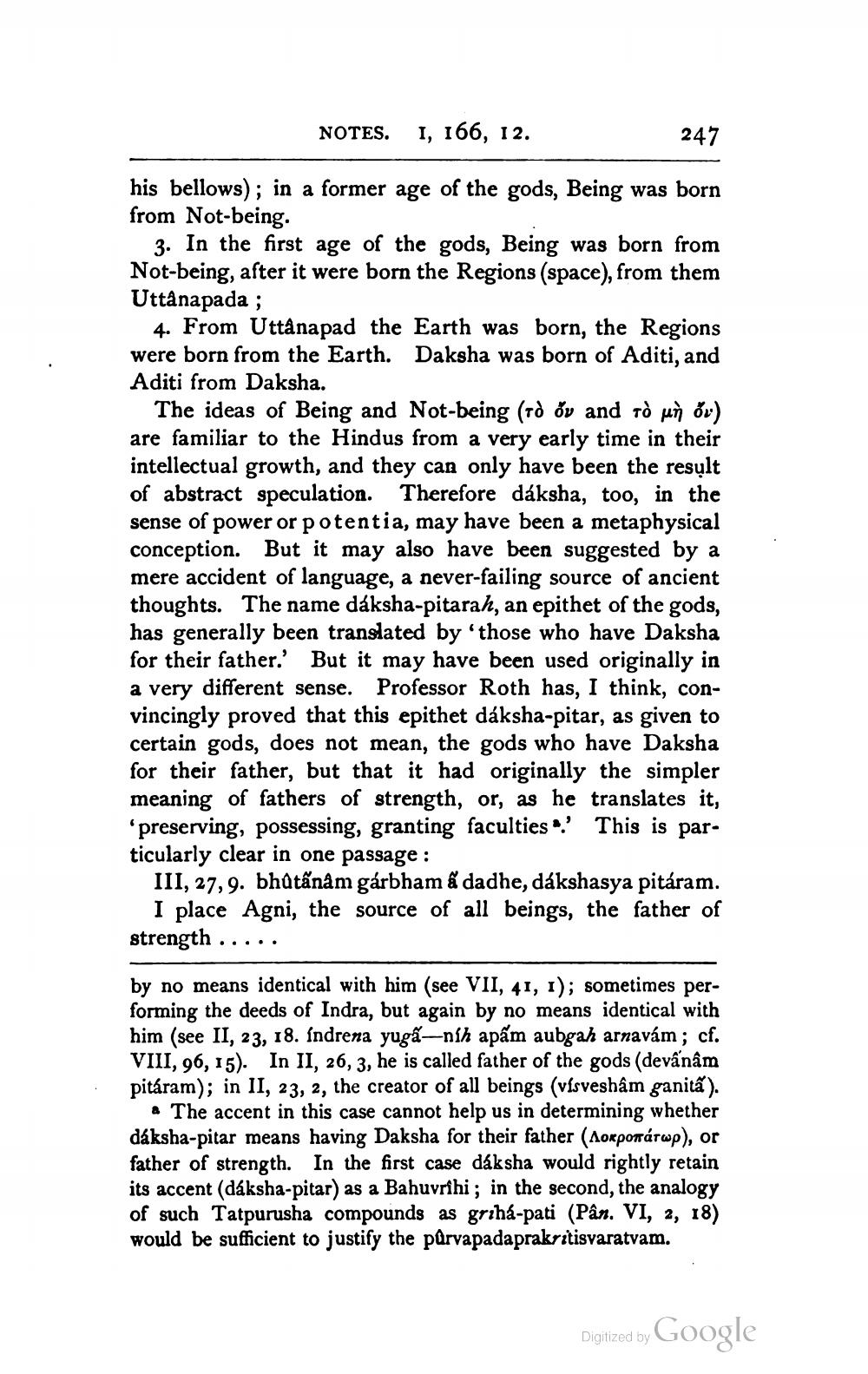________________
NOTES. 1, 166, 12.
247
his bellows); in a former age of the gods, Being was born from Not-being.
3. In the first age of the gods, Being was born from Not-being, after it were born the Regions (space), from them Uttanapada ;
4. From Uttanapad the Earth was born, the Regions were born from the Earth. Daksha was born of Aditi, and Aditi from Daksha.
The ideas of Being and Not-being (rò őv and rò un ov) are familiar to the Hindus from a very early time in their intellectual growth, and they can only have been the resụlt of abstract speculation. Therefore dáksha, too, in the sense of power or potentia, may have been a metaphysical conception. But it may also have been suggested by a mere accident of language, a never-failing source of ancient thoughts. The name dáksha-pitarah, an epithet of the gods, has generally been translated by those who have Daksha for their father.' But it may have been used originally in a very different sense. Professor Roth has, I think, convincingly proved that this epithet dáksha-pitar, as given to certain gods, does not mean, the gods who have Daksha for their father, but that it had originally the simpler meaning of fathers of strength, or, as he translates it, 'preserving, possessing, granting faculties' This is particularly clear in one passage :
III, 27,9. bhdtấnam garbham å dadhe, dákshasya pitáram.
I place Agni, the source of all beings, the father of strength ..... by no means identical with him (see VII, 41, 1); sometimes performing the deeds of Indra, but again by no means identical with him (see II, 23, 18. Indrena yugã-níh apấm aubgah arnavám; cf. VIII, 96, 15). In II, 26, 3, he is called father of the gods (devấnâm pitáram); in II, 23, 2, the creator of all beings (vísveshâm ganitā).
& The accent in this case cannot help us in determining whether dáksha-pitar means having Daksha for their father (Aorporátwp), or father of strength. In the first case dáksha would rightly retain its accent (dáksha-pitar) as a Bahuvrihi; in the second, the analogy of such Tatpurusha compounds as grihá-pati (Pân. VI, 2, 18) would be sufficient to justify the purvapada prakritisvaratvam.
Digitized by
Digized by Google




